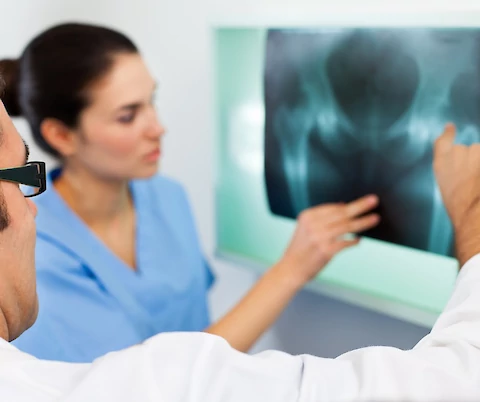
Breaking a hip can be a life-altering event that not only affects an individual's mobility but also increases the risk of other injuries. The hip joint is a critical component of the body's musculoskeletal system that provides support, stability, and range of motion. Any disruption to the hip joint can lead to a cascade of adverse events that can put an individual's health at risk.
One of the most significant risks associated with breaking a hip is the increased likelihood of falling. The hip joint is responsible for maintaining balance and stability during movement, and when it is compromised, an individual may have trouble walking, standing, or even sitting. This lack of stability can increase the likelihood of losing balance and falling, which can cause further injury, including additional fractures, head trauma, and other serious injuries.
Additionally, breaking a hip can lead to a decrease in physical activity and muscle mass. After a hip fracture, an individual may be less active due to pain, discomfort, and mobility limitations. This lack of physical activity can lead to muscle atrophy and weakness, which can further increase the risk of falls and other injuries. Furthermore, individuals who are less active may be more likely to experience weight gain, which can also contribute to a higher risk of falls.
Breaking a hip can also increase the risk of developing a blood clot. After a hip fracture, an individual may spend a significant amount of time immobile or in bed, which can increase the risk of blood clots forming in the legs. These blood clots can then travel to the lungs, causing a potentially life-threatening condition called a pulmonary embolism.
Another potential complication of breaking a hip is the development of pressure sores. Individuals who are bedridden or spend a lot of time sitting may be at risk of developing pressure sores, which are areas of damaged skin caused by prolonged pressure. Pressure sores can be painful and can increase the risk of infection, which can further compromise an individual's health.
Finally, breaking a hip can have significant psychological consequences. The recovery process can be long and challenging, and individuals may experience feelings of frustration, anxiety, and depression. These emotions can affect an individual's overall well-being and may lead to a decrease in quality of life.
In conclusion, breaking a hip can have far-reaching consequences that extend beyond the initial injury. Individuals who break their hip are at increased risk of falling, developing blood clots, pressure sores, and experiencing psychological distress. Therefore, it is essential to take steps to prevent hip fractures, including maintaining a healthy diet and exercise routine, using assistive devices when necessary, and reducing fall hazards in the home. Furthermore, if a hip fracture does occur, it is crucial to seek prompt medical attention to minimize the risk of further complications.
Senior Helpers Overland Park provides excellent and personalized in-home care for all seniors including those that may need surgery assistance services. If you or someone you know would benefit from comprehensive non-medical care and assistance please click here. We also proudly serve Olathe, Lenexa, and Overland Park. Contact us for senior professional care for your older loved one.